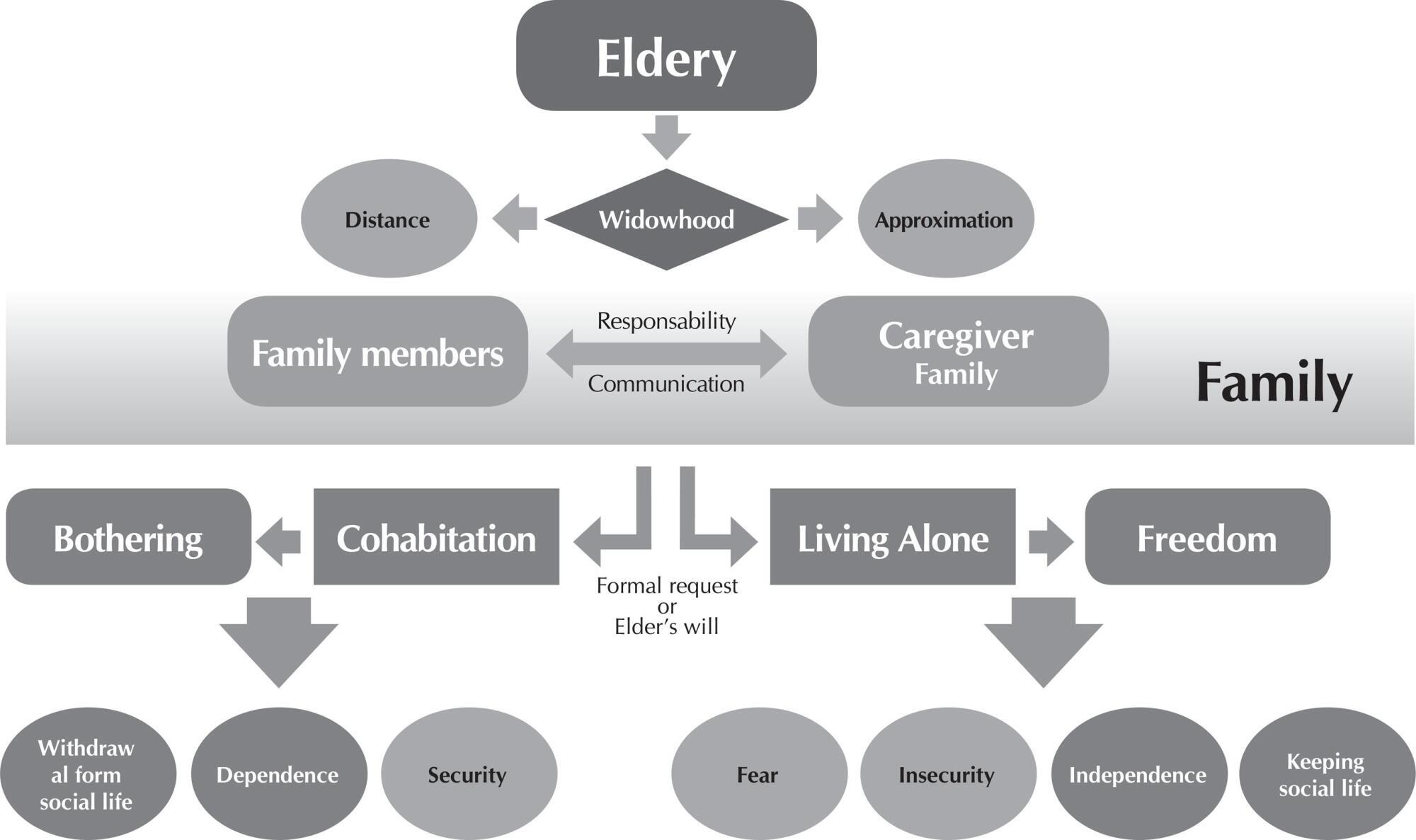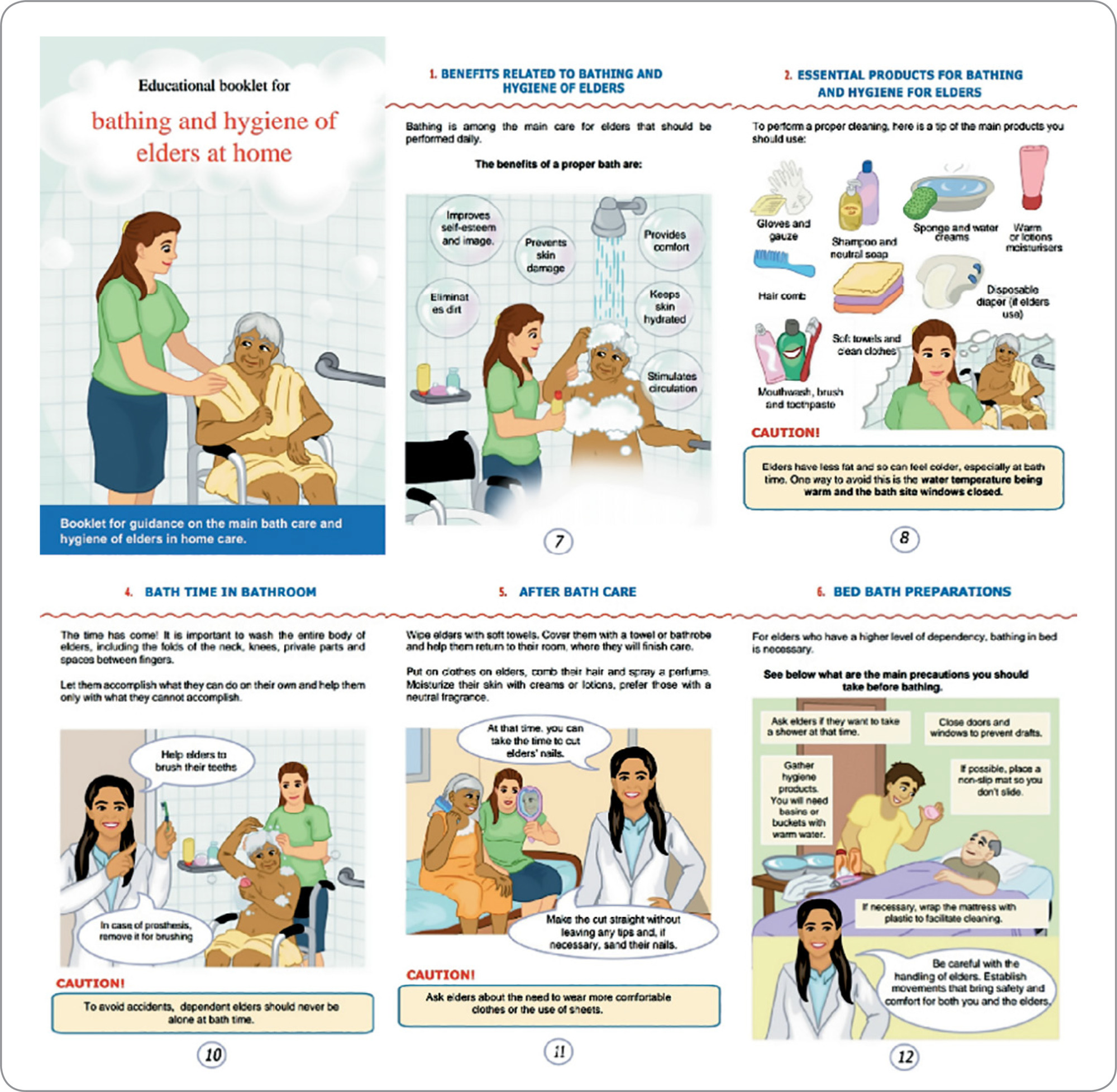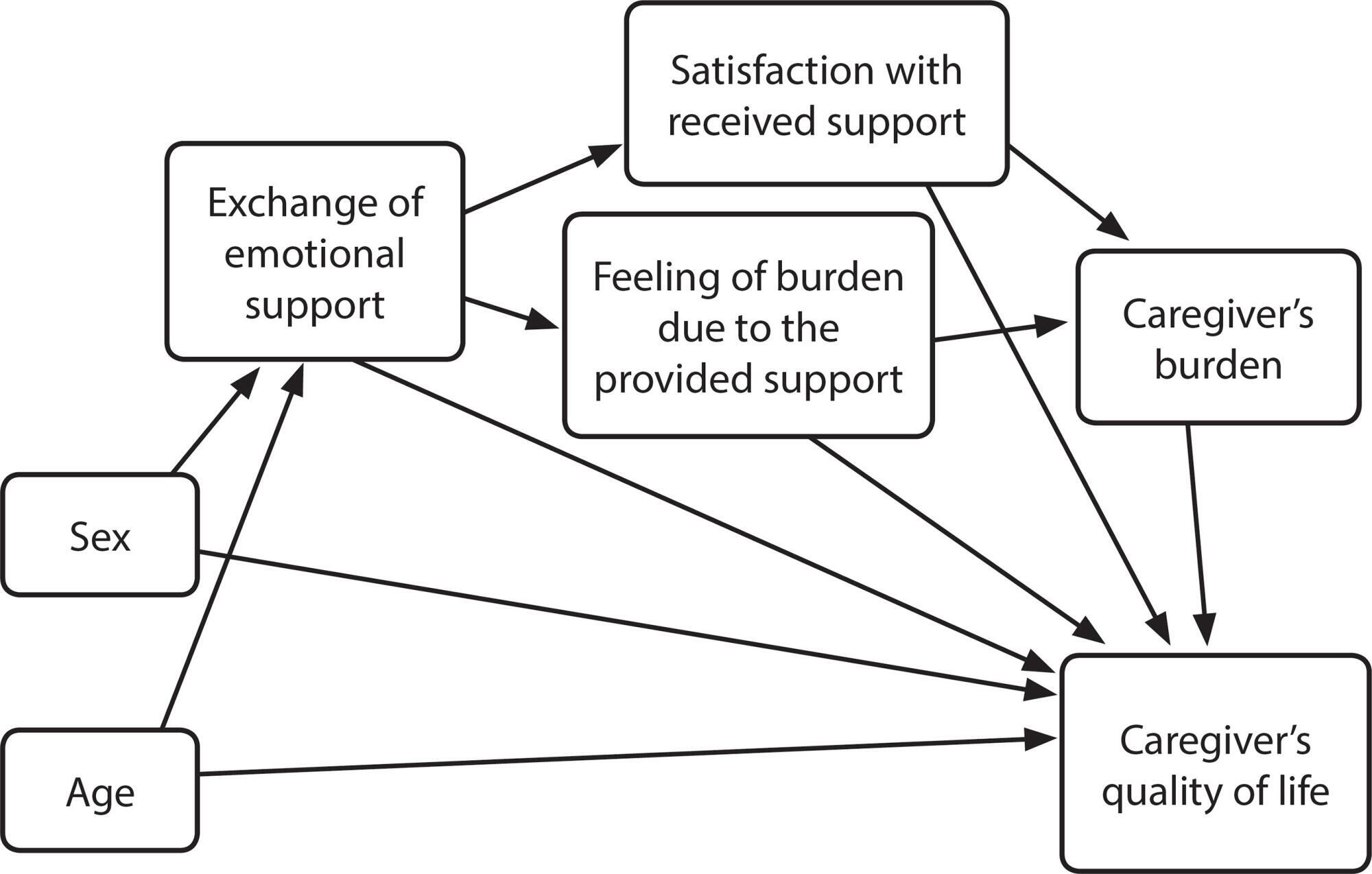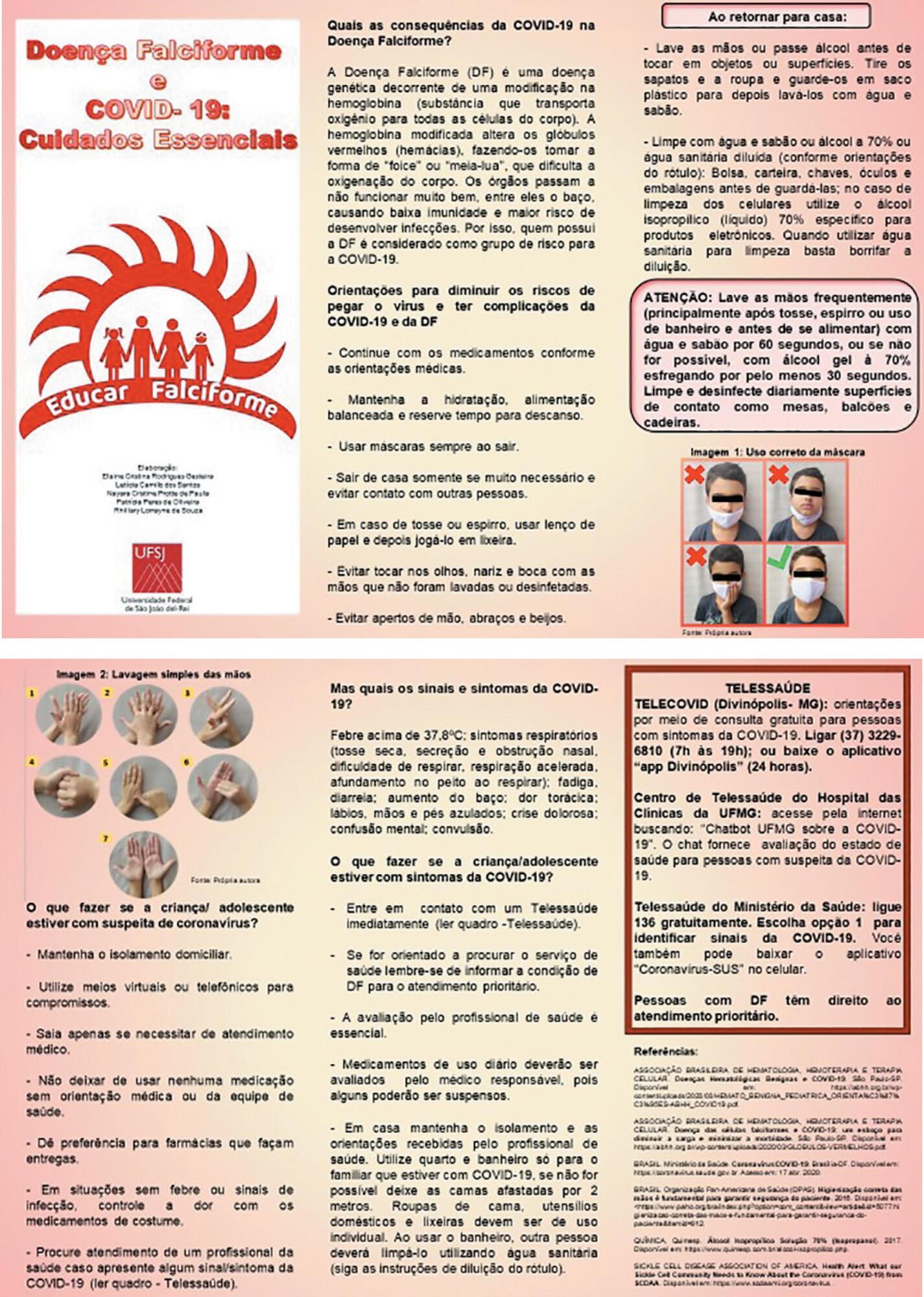-
RESEARCH01-01-2017
The family in face of the elderly’s reality of living alone
Revista Brasileira de Enfermagem. 2017;70(2):235-241
Abstract
RESEARCHThe family in face of the elderly’s reality of living alone
Revista Brasileira de Enfermagem. 2017;70(2):235-241
DOI 10.1590/0034-7167-2016-0398
Views0See moreABSTRACT
Objective:
to understand the family dynamics in face of the reality of the elderly living alone.
Method:
study of qualitative approach with theoretical reference of symbolic interactionism that involved interviews with families. Data were analyzed by thematic analysis.
Results:
six families participated in the study. The discourse analysis originated the following categories: The family respecting their decision making; The family organizing itself to the process of living alone after the age of 80 years; The family experiencing the freedom of living alone.
Conclusion:
in this study, it was possible to identify the facilitation of the possibility of living alone with preparation and agreements between the family during the family life cycle, leading to the feeling of freedom and quality of life of all members. Nursing, as a science responsible for elaborating care strategies, should work together with families to assist in the planning of care plans based on the individual social reality of the family.

-
LETTER TO THE EDITOR01-01-2017
Dimensioning the instrumentation: Exploratory or confirmatory factor analysis?
Revista Brasileira de Enfermagem. 2017;70(2):233-234
Abstract
LETTER TO THE EDITORDimensioning the instrumentation: Exploratory or confirmatory factor analysis?
Revista Brasileira de Enfermagem. 2017;70(2):233-234
-
01-01-2017
Viral hepatitis: a challenge for nursing
Revista Brasileira de Enfermagem. 2017;70(2):231-232
Abstract
Viral hepatitis: a challenge for nursing
Revista Brasileira de Enfermagem. 2017;70(2):231-232
DOI 10.1590/0034-7167.2017700201
Views0The 20th century unveiled the mystery of the etiology of viral hepatitis, with the identification of five different agents responsible for these infections: the hepatitis A virus (HAV), hepatitis B virus (HBV), hepatitis C virus (HCV), hepatitis D virus (HDV), and hepatitis E virus (HEV). These viruses account for one million deaths every year. HBV, […]See more -
01-01-2017
Hepatites Virais: um desafio para enfermagem
Revista Brasileira de Enfermagem. 2017;70(2):231-232
Abstract
Hepatites Virais: um desafio para enfermagem
Revista Brasileira de Enfermagem. 2017;70(2):231-232
DOI 10.1590/0034-7167.2017700201
Views0O século XX desvendou os mistérios sobre a etiologia das hepatites virais, identificando cinco agentes distintos responsáveis por essas viroses: vírus da hepatite A (HAV), vírus da hepatite B (HBV), vírus da hepatite C (HCV), vírus da hepatite D (HDV) e vírus da hepatite E (HEV). Esses vírus são responsáveis por um milhão de mortes […]See more -
01-01-2017
ERRATUM
Revista Brasileira de Enfermagem. 2017;70(1):242-242
Abstract
ERRATUM
Revista Brasileira de Enfermagem. 2017;70(1):242-242
DOI 10.1590/0034-7167.20177001e01
Views0Article “Accessibility assessment of assistive technology for the hearing impaired”, with number of DOI: , published in the journal Revista Brasileira de Enfermagem, v69(5):781-7, page 781 that read:“Luciana Vieira de CaravalhoI”.[…]See more -
01-01-2017
From silence to voice: book review
Revista Brasileira de Enfermagem. 2017;70(1):240-241
Abstract
From silence to voice: book review
Revista Brasileira de Enfermagem. 2017;70(1):240-241
DOI 10.1590/0034-7167-2016-0066
Views1The book() is a translation of the original titled From silence to voice(), published by Cornell Paperbacks in 2006. Bernice Burech and Susanne Gordon are journalists and took the nursing profession as the object of study. The authors have diagnosed silence in the profession, which motivated writing a work valuing the use of all types […]See more -
01-01-2017
Reflections in the light of the complexity theory and nursing education
Revista Brasileira de Enfermagem. 2017;70(1):236-239
Abstract
Reflections in the light of the complexity theory and nursing education
Revista Brasileira de Enfermagem. 2017;70(1):236-239
DOI 10.1590/0034-7167-2016-0239
Views0See moreABSTRACT
Objective:
to reflect on nursing education, taking into account the principles of complex thinking proposed by Morin.
Method:
reflection based on the principles of the complexity theory by Edgar Morin.
Results:
the application of complexity in teaching proposes an emancipatory education based on questioning and social transformation. It comprises the education of nurses who interact with others as a characteristic of their work. It is necessary to prepare students to develop critical and reflective attitudes and actions to overcome the fragmentation and linearity of knowledge.
Conclusion:
nursing care has been based on a reductionist assistance, reflecting the Cartesian model. Thus, nursing education seeks to comprise shared knowledge and experiences so that no subject or professional overpowers another, accepting the uniqueness of professionals and patients.
-
07-05-2021
Educational technology for bathing/hygiene of elders at home: contributions to career knowledge
Revista Brasileira de Enfermagem. 2021;74:e20200890
Abstract
Educational technology for bathing/hygiene of elders at home: contributions to career knowledge
Revista Brasileira de Enfermagem. 2021;74:e20200890
DOI 10.1590/0034-7167-2020-0890
Views0See moreABSTRACT
Objective:
to build and validate an educational booklet for bathing and hygiene of elders at home.
Methods:
a methodological study, developed through data collection in literature and situational diagnosis, booklet construction, material qualification through validation by expert judges (11 nurses) and target audience (30 caregivers). Data were analyzed descriptively. The minimum content validity index of 0.80 was considered.
Results:
in content and appearance validation, experts assigned Content Validity Index global of 0.92, while for assessment of the material’s suitability, the booklet was classified as “superior”, with an average of 90%. In the validation of caregivers, the overall Content Validity Index was 1.0.
Conclusion:
the booklet was successfully validated and can be considered in the context of health education and collaborate with an adequate and safe practice of bathing and hygiene of elders at home.

-
ORIGINAL ARTICLE11-16-2020
From despair to hope: copying of relatives of hospitalized children before bad news report
Revista Brasileira de Enfermagem. 2020;73:e20200340
Abstract
ORIGINAL ARTICLEFrom despair to hope: copying of relatives of hospitalized children before bad news report
Revista Brasileira de Enfermagem. 2020;73:e20200340
DOI 10.1590/0034-7167-2020-0340
Views0See moreABSTRACT
Objective:
to understand the experiences of relatives of critically ill children before bad news report.
Method:
a phenomenological study based on Heidegger’s philosophical framework. Data collection was carried out from October 2018 to March 2019, through phenomenological interviews with 15 relatives of children hospitalized in a Pediatric Intensive Care Unit.
Results:
relatives, in their existentiality, experience the facticity thrown into unpredictable situations, regardless of their choices and are faced with feelings of shock, despair and fear before bad news. After emotional impact, especially regarding the possibility of death, relatives reveal hope as a mechanism for coping with the situation.
Final considerations:
solidarity and sensitivity by health professionals, especially nurses, are essential in understanding the existential dimension of relatives who experience such an experience, understanding the several facets of their existence and offering them opportunities to project themselves.
-
ORIGINAL ARTICLE12-05-2019
Quality of life, burden, family emotional support: a model for older adults who are caregivers
Revista Brasileira de Enfermagem. 2019;72:169-176
Abstract
ORIGINAL ARTICLEQuality of life, burden, family emotional support: a model for older adults who are caregivers
Revista Brasileira de Enfermagem. 2019;72:169-176
DOI 10.1590/0034-7167-2018-0439
Views0See moreABSTRACT
Objective:
To investigate associations between quality of life, sex, age, burden, and nature of emotional support available in the family in older adults who are caregivers of older relatives.
Method:
Cross-sectional and correlational study on 148 caregivers gathered in public and private healthcare services, who were subjected to psychological measures of quality of life, burden, exchange of emotional support, sex, and age. Data were analyzed using Chi-square, Fisher’s exact test and path analyses (p < 0.05).
Results:
A total of 77% women, average age of 69.7 years. There were significant associations between exchange of support and burden due to the provided assistance, being a woman and satisfaction with the received support, satisfaction with the received support and burden, burden and quality of life, and satisfaction with the received support and feeling of burden due to the provided support.
Conclusion:
Satisfaction with the received emotional support moderate the association between sex and burden, and such moderate the association between satisfaction with emotional support and perceived quality of life.

-
ORIGINAL ARTICLE12-05-2019
Functional capacity assessment of long-lived older adults from Amazonas
Revista Brasileira de Enfermagem. 2019;72:49-55
Abstract
ORIGINAL ARTICLEFunctional capacity assessment of long-lived older adults from Amazonas
Revista Brasileira de Enfermagem. 2019;72:49-55
DOI 10.1590/0034-7167-2017-0798
Views0See moreABSTRACT
Objective:
To evaluate the functional capacity of long-lived older adults from Amazonas.
Method:
A cross-sectional epidemiological study was carried out with 116 older adults aged 80 years or older, registered in a primary health care unit in Belém, in the state of Pará, Brazil. The Functional Independence Measure (FIM) was used for functional capacity assessment and the Mini-Mental State Examination (MMSE) for cognitive screening. Univariate and bivariate analyses were carried out, in addition to the Pearson’s chi-square test.
Results:
The older adults presented modified independence in the self-care, sphincter control and locomotion dimensions, and needed supervision for mobility/transfers. In mobility, men presented complete independence. Modified independence was found in the 80-89 age group. It was observed that, the lower the education level, the worse the cognitive performance.
Conclusion:
In spite of their advanced age, long-lived older adults still present functional capacity for activities of daily living, even though they required supervision for high energy expenditure tasks, such as mobility and transfers.
-
06-11-2021
Educational technology on COVID-19 for families of children and adolescents with sickle cell disease
Revista Brasileira de Enfermagem. 2021;74:e20201045
Abstract
Educational technology on COVID-19 for families of children and adolescents with sickle cell disease
Revista Brasileira de Enfermagem. 2021;74:e20201045
DOI 10.1590/0034-7167-2020-1045
Views1See moreABSTRACT
Objective:
to construct and validate educational technology on COVID-19 and essential care for families of children/adolescents with sickle cell disease.
Methods:
this is a methodological study, in three stages: 1) elaborated educational technology, using the Doak, Doak and Root theoretical-methodological model; 2) content and appearance validation by the content validity coefficient. Delphi technique was applied in two rounds (Delphi I [12 judges]/Delphi II [11 judges]); 3) conducting a pilot test with six families.
Results:
“Sickle cell disease and COVID-19: essential care” included: consequences of COVID-19 in sickle cell disease, guidelines for reducing the risks of contracting the virus and having complications, signs and symptoms of COVID-19, guidelines in case of child/adolescent with suspicion or symptoms of COVID-19. Global content validity coefficient (Delphi II): 0.98.
Conclusion:
educational technology presented content and appearance validity for families of children/adolescents with sickle cell disease, related to COVID-19.

-
ORIGINAL ARTICLE12-05-2019
Self-care activities, sociodemographic variables, treatment and depressive symptoms among older adults with Diabetes Mellitus
Revista Brasileira de Enfermagem. 2019;72:22-29
Abstract
ORIGINAL ARTICLESelf-care activities, sociodemographic variables, treatment and depressive symptoms among older adults with Diabetes Mellitus
Revista Brasileira de Enfermagem. 2019;72:22-29
DOI 10.1590/0034-7167-2017-0579
Views0See moreABSTRACT
Objective:
to analyze the association between self-care activities of older adults with Type 2 Diabetes Mellitus (DM) and sociodemographic variables, type of treatment and depressive symptoms.
Method:
inferential and cross-sectional study, with 121 older adults with Type 2 DM in ambulatory care. We used a questionnaire for characterization of sociodemographic and health, questionnaire self-care activities with DM, Mini Mental State Examination and Geriatric Depression Scale. The association of variables was used (Fisher’s exact test) and for comparing the means (Student’s t-test and analysis of variance).
Results:
The mean age was 68.1 years, the majority were women (57.2%), retired (71.9%) and married (65.3%). The highest averages were for the activities: “to dry the spaces between the toes, after washing them” and smaller averages for “exercise”.
Conclusion:
In spite of high average for self-care activities, there is a need for enhanced performance and compliance to them.
-
ORIGINAL ARTICLE09-16-2019
Social representations of the elderly about HIV/AIDS
Revista Brasileira de Enfermagem. 2019;72(5):1349-1355
Abstract
ORIGINAL ARTICLESocial representations of the elderly about HIV/AIDS
Revista Brasileira de Enfermagem. 2019;72(5):1349-1355
DOI 10.1590/0034-7167-2018-0296
Views0See moreABSTRACT
Objective:
to understand the representational content about HIV/AIDS among seropositive elderly people.
Method:
a qualitative study carried out from April to May 2017, in the city of Recife/PE, with 48 seropositive elderly people, through a semi-structured interview. The Social Representations Theory was used as theoretical framework and the method of lexical analysis through IRAMUTEQ software.
Results:
it was observed that the social representation of HIV is structured around the proximity of death and that it is a disease of restricted groups, leading to feelings of sadness. On the other hand, it is evident a transformation of the representation linked to the reified knowledge, leading to the process of naturalization of the disease.
Final considerations:
it is concluded that the elderly living with HIV, when they undergo a process of reframing about the disease, become more flexible to deal with their condition of seropositivity.
-
ORIGINAL ARTICLE08-26-2022
Sickness absenteeism of Primary Health Care professionals before and during the COVID-19 pandemic
Revista Brasileira de Enfermagem. 2022;75:e20220028
Abstract
ORIGINAL ARTICLESickness absenteeism of Primary Health Care professionals before and during the COVID-19 pandemic
Revista Brasileira de Enfermagem. 2022;75:e20220028
DOI 10.1590/0034-7167-2022-0028
Views0See moreABSTRACT
Objective:
to identify the frequency of occurrence of sickness absenteeism, according to the profile of Primary Health Care (PHC) professionals, and verify if there was an impact of the pandemic on absence duration and reason.
Methods:
a cross-sectional study, from January/2019 to December/2020, with PHC professionals from a municipality in northeastern São Paulo. Descriptive statistics were performed, with frequency calculation.
Results:
of the 977 PHC professionals, 633 (64.79%) used a medical certificate to justify their absence from work in 2019, and 837 (85.67%) in 2020. The main reason for leave was diseases of the musculoskeletal system and connective tissue in the two years. The mean duration of leave was 7.33 days (SD=17.33) in 2019 and 9.88 days (SD=16.05) in 2020. Nursing assistants were the ones who took the most leave in both years.
Conclusions:
there was an impact of the pandemic on absence duration and reason.
Search
Search in:
Nuvem de Tags
Adolescente (85) Atenção Primária à Saúde (239) COVID-19 (91) Criança (91) Cuidados de Enfermagem (269) Educação em Enfermagem (151) Educação em Saúde (139) Enfermagem (930) Enfermagem Pediátrica (86) Estudantes de Enfermagem (77) Estudos de Validação (131) Família (87) Idoso (208) Promoção da Saúde (99) Qualidade de Vida (104) Saúde do Trabalhador (86) Saúde Mental (145) Saúde Pública (82) Segurança do Paciente (150) Tecnologia Educacional (100)



